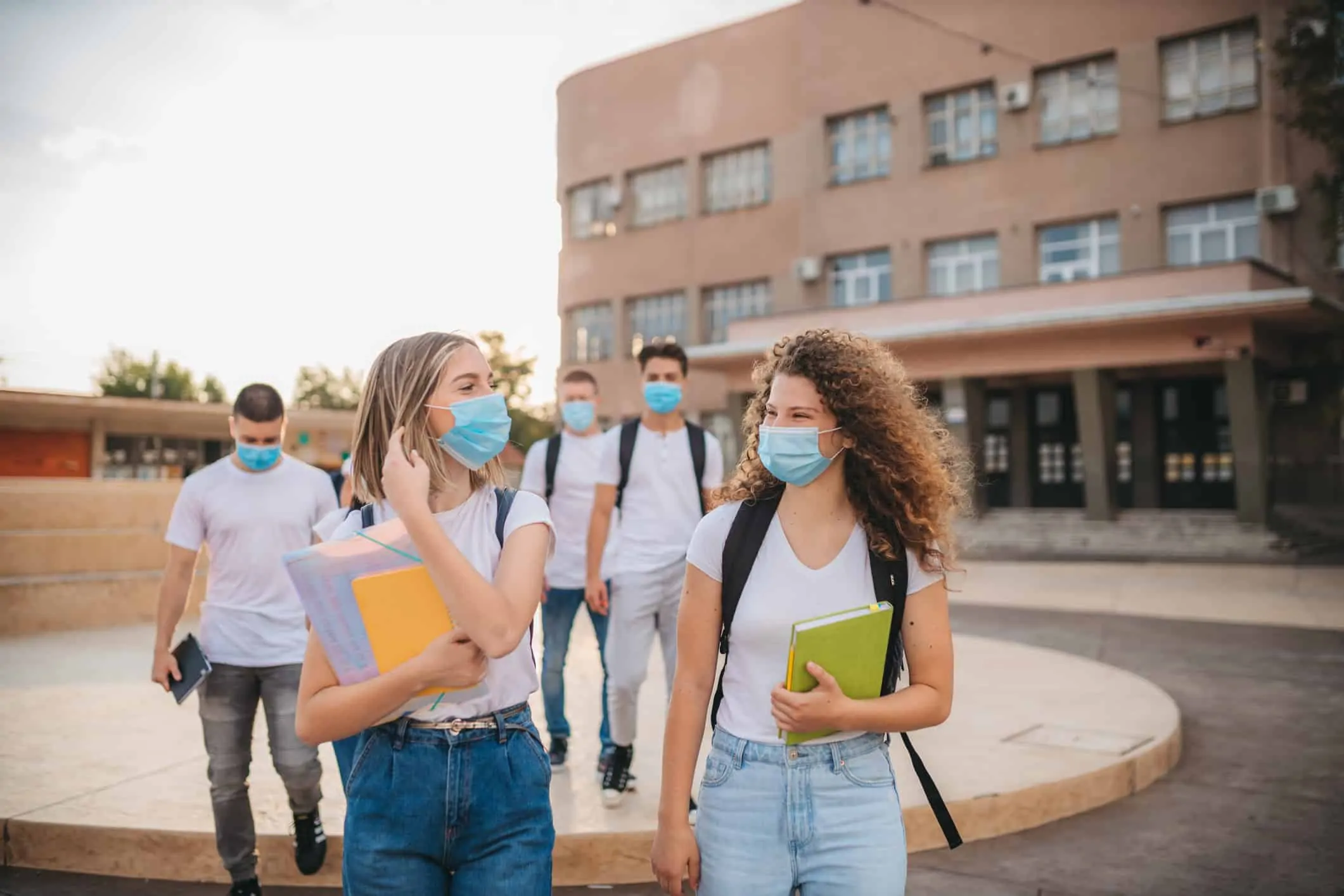We’re all going through a rough time with the ongoing pandemic. Some of us have lost close friends and loved ones. Many of us have lost work. The stress of isolation can take its toll quickly, and even after lockdowns have lifted, the restrictions we must impose on ourselves can have a tremendous effect on our mental and emotional wellness and health.
Our children are heavily affected, as well. The teenage years are already quite tumultuous and stressful for many growing young adults but add to it a break in routine and learning, and cabin fever, and we’re faced with a generation experiencing a profound impact on their emotional development.
As we continue to navigate this difficult situation and remain cognizant of the dangers of the virus, it’s important to take our children’s (and our own) mental and emotional wellness and well-being into consideration, and work together to stay sane and safe while dealing with the day-to-day effects of the crisis. To help parents and teens alike, here’s our 2020 back-to-school emotional wellness checklist.
Spending More Time With Friends (Safely)
Social contact is important, especially for teens. But what shape or form that contact will take depends highly on the options at hand. As dangerous as COVID-19 is, it’s not the most obvious or looming threat – and we’re only reminded of it when it invariably strikes, either in the news or within the community. This can make it difficult for teens to uphold and remember social distancing guidelines, particularly if they’re hanging out together.
Teens do want to keep each other safe – but that’s not always easy, or possible when interacting socially. Consider encouraging your teen to continue hanging out with friends after lockdowns have ended, but safely and without as much danger of physical contact and viral transmission. While visits to the mall or theater might be out of the question, and activities like basketball or hiking greatly increase the risk of infection, biking (with masks) offers fun while minimizing contact.
There’s always virtual interaction. Chances are your teen already has a group chat or two, and they might even be calling their friends regularly. But if they aren’t, why not bring it up as an idea? Video and voice-only group calls can act as a great substitute to face-to-face meetings, especially when combined with a degree of interactive fun. Video games can oftentimes be a much-needed source of fun, safe social interaction.
There are, of course, risks to overdoing it in the virtual world – most notably cyberbullying and the effects of negative online media. But when used as a tool to stay in touch with friends, the Internet can be a critical tool in keeping sane during these strange times.
Creating and Maintaining Routines
The risks of rumination are greater than ever, especially at a time when routines are falling apart and it’s becoming difficult to keep track of time. Whenever we aren’t keeping ourselves busy, it’s easy for the mind to slip into a bit of despair and anxiety regarding the current state of affairs.
Whether it be from abstract worries to the more immediate complaints of missing out on a tournament due to cancelled events, or missing one’s partner and friends after weeks and months spent apart. Encourage your teen to structure their week, making sure they’re waking up and falling asleep at the same times, and keeping busy with chores, schoolwork, exercising, and socializing.
They might need a little help and a little encouragement, and it’d be a good reason to create and keep up a routine of your own. Having a routine not only lets you keep track of time as the week progresses, but it helps keep your mind busy and active during times where isolation and inactivity can lead to ruminating thoughts, negative feelings, and the fear of being “stuck”.
These feelings can be especially disastrous for teens, as they’re in the middle of learning to form important habits and becoming self-reliant, and they need consistent and healthy sleep schedules to ensure proper emotional and neurological development. Routines also help both teens and adults develop a sense of normalcy and calm any emerging anxieties.
Practicing Self-Care and Improving Emotional Wellness
Self-care is a term that can seem confusing at first, but it generally boils down to anything you can do for yourself to take a break or destress, without necessarily being destructive. That rules out happy hour drinks or going through several bags of junk food, and instead focuses on things like skincare, exercise, cooking, baking, painting, writing, or reading a new book.
Just as routines develop and promote a sense of normalcy and help deal with feelings of anxiety or ruminating thoughts, incorporating these things into your day-to-day can help stave off some of the effects of social isolation and stress, and let teens create a definite boundary between their responsibilities (chores and schoolwork) and the time they use for themselves.
Seeking Teletherapy Related Options and Solutions
For teens who require ongoing physical or mental healthcare, the pandemic crisis may have had a drastic impact on the frequency and level of your teen’s care. It’s important to prioritize effective teletherapy related services to help them continue to deal with the symptoms of their chronic condition.
Some teens have also recently developed mental health problems as a result of COVID-19, including (but not limited to):
-
- The recent and sudden school closures.
- The loss of a loved one.
- Worries due to financial instability and job loss in the family.
Such problems can include depression, panic attacks, and anxiety. Teletherapy can be an important part of dealing with these severe mental health issues and developing the toolkit to stay safe during the pandemic.
Providing Calm and Steady Support
It’s important for teens (and all of us) to understand that it’s normal to feel anxious in these times, and to lean a little more heavily on those around us as a source of support. Just as it’s important to support one another, stay connected, and maintain self-care routines. With the crisis exacerbating all other stress, balancing mental and emotional wellness is critical.








